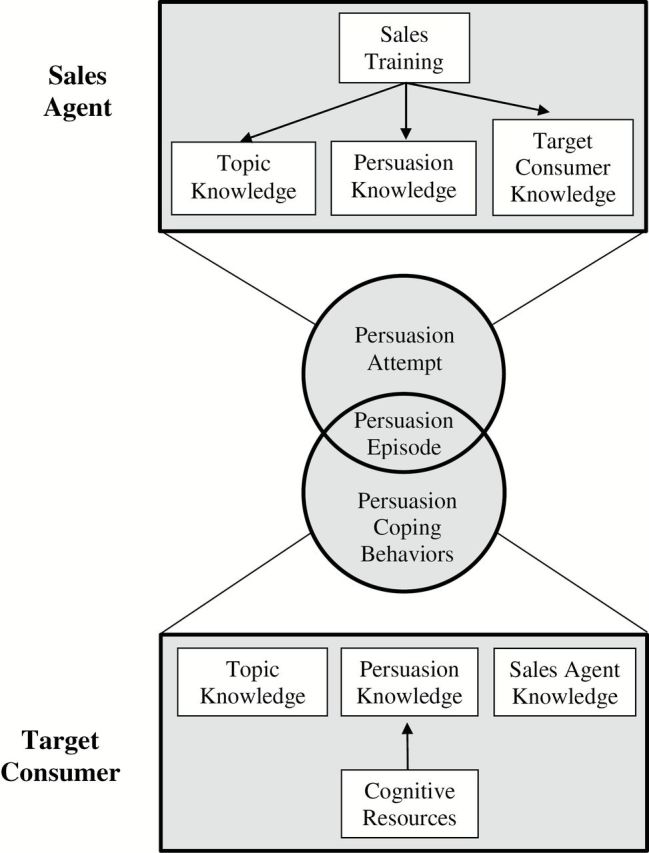Figure 1.

Adaptation of Friestad and Wright’s (1994) Persuasion Knowledge Model (PKM). A persuasion episode consists of a dyadic interaction between a sales agent and a target consumer. Sales training reinforces and refines sales agents’ knowledge about the topic (the product or service), the target, and how to persuade the target. The target consumers’ cognitive resources affect their ability to draw on persuasion knowledge to make inferences about sales agents’ ulterior motives. This task requires higher-level attributional processing, which is affected by cognitive load (Campbell & Kirmani, 2000). Persuasion coping behaviors are consumers’ adaptable responses to contend with persuasion attempts to ensure that outcomes are in their best interests.
